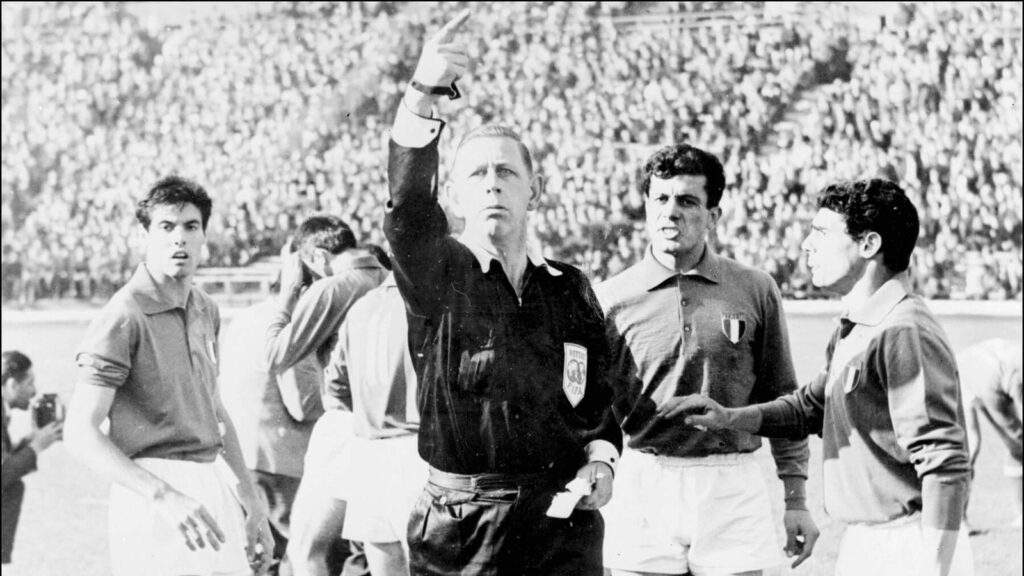There are millions of moments in the rich history of football, including dramatic matches and memorable goals. Nonetheless, one game emerges for all the bad reasons: the Chile versus Italy game of the FIFA World Cup in 1962, also known as “The Battle of Santiago.” It is not remembered for skilful play or fascinating goals. It is notorious for the complete brutality, unsportsmanlike conduct and utter loss of control on the pitch. It remains such a terrifying chapter of football history that it altered the direction of officiating in the game forever.
The Background – Political Tensions and Media Wars
The 1962 FIFA World Cup took place in Chile, a country still trying to recover from a powerful earthquake that had hit in 1960. It was thought that to host the World Cup would boost the national morale and cast Chile as a vibrant nation on the world stage.
However, even before the competition had put in an appearance, tempers were already flaring between host nation Chile and their Italian adversaries. Such was the wrath and fury created in Chile by perhaps the two most infamous articles ever written by Italian journalists. The articles condemned Santiago to a “dump” and spewed venom against the very soul of its people. The response of the local media was a nationalistic outrage. The Chilean press portrayed Italians as proud and disrespectful. By the time the match day arrived, emotions were running dangerously high among players, fans, and even officials.
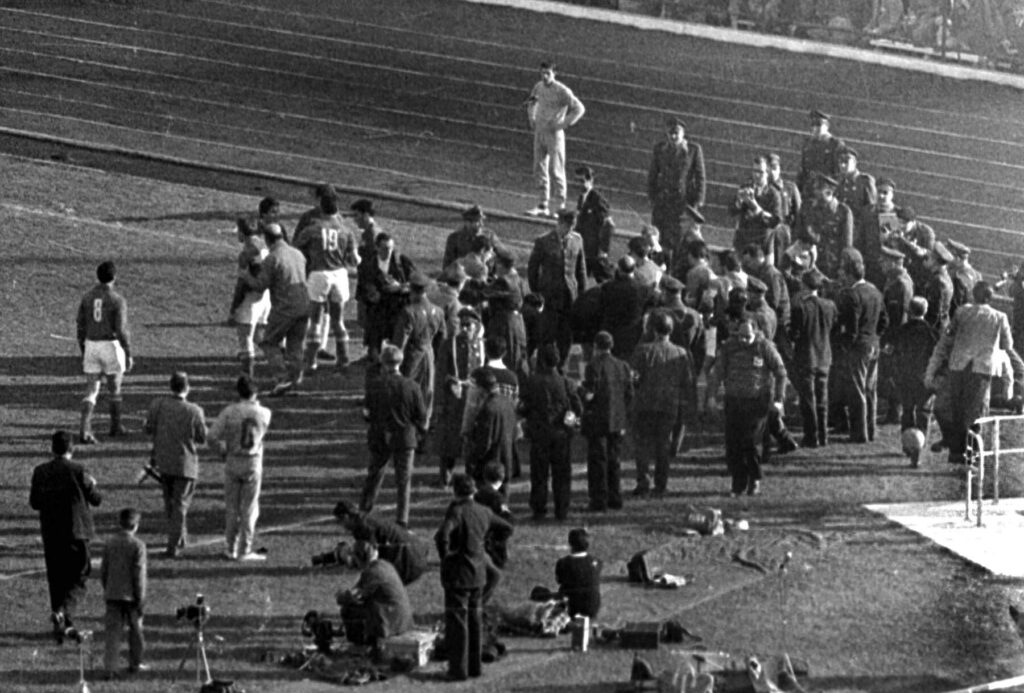
The Match – A Fight from Start to Finish
On June 2, 1962, in Santiago’s Estadio Nacional, the two teams faced each other in the second round of the World Cup. From the first whistle, it was clear that this was not going to be a normal football match. Both teams were aggressive from the start, and tackles quickly turned into punches and kicks.
Within the first few minutes, Chilean player Leonel Sánchez punched Italian player Mario David in the face, but the referee did not punish him. Moments later, David responded by kicking Sánchez in the head and was immediately sent off. This only increased the anger among players, leading to more fights, pushing, and dirty tackles.
The referee, Englishman Ken Aston, struggled to control the chaos. In total, two Italian players were sent off, but many other dangerous actions went unpunished. The police had to come onto the field multiple times to separate fighting players. There were no proper attempts at playing football; instead, it was more like a street fight.
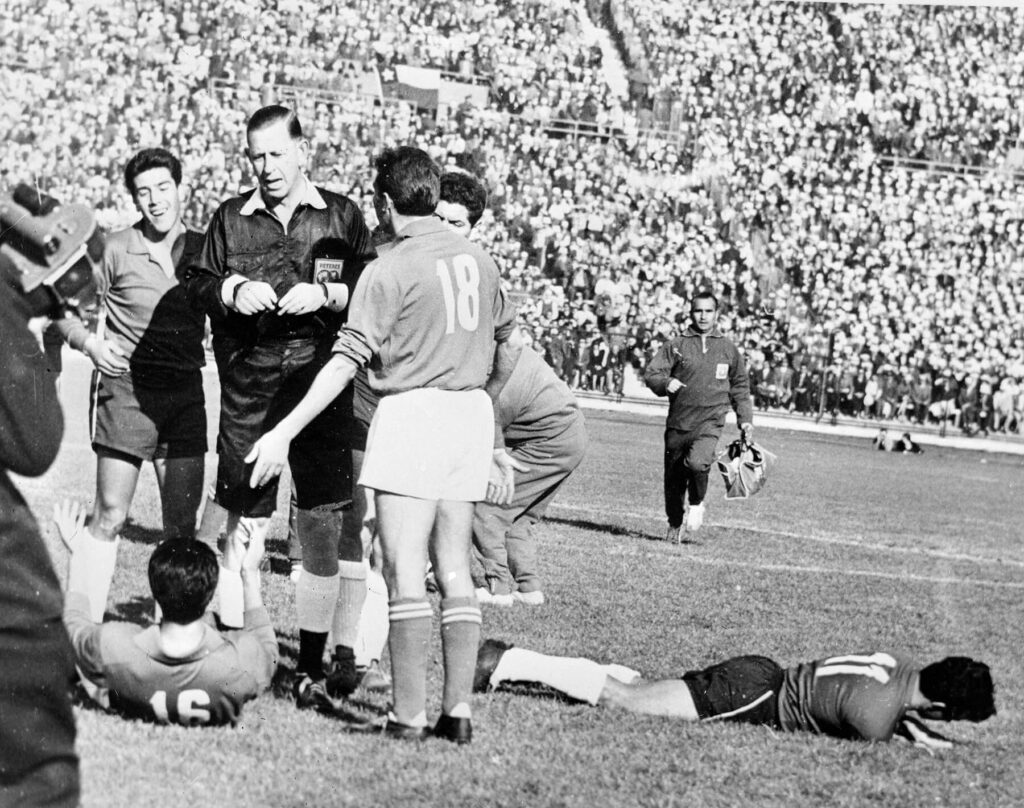
Referee Ken Aston’s Struggle
Ken Aston later admitted that the match was the toughest of his career. He had to deal with extreme violence on the pitch while also fearing for his safety. After the match, Aston famously said, “I wasn’t refereeing a football match, I was acting as an umpire in military combat.”
At that time, there were no yellow or red cards in football. Referees had only verbal warnings and dismissals to control players. Aston struggled to communicate with players who spoke different languages. And his decisions did little to calm things down.
Chile’s Win and Italy’s Exit
In the end, Chile won the match 2-0, but football fans around the world were shocked at the level of violence. Italy felt unfairly treated, claiming the referee was biased, while Chile celebrated their victory with pride. However, the world press described the match as a disgrace to football.
Italy was eliminated from the tournament in the first round, while Chile went on to reach the semi-finals. Despite their success, the violent match left a stain on the tournament’s image.
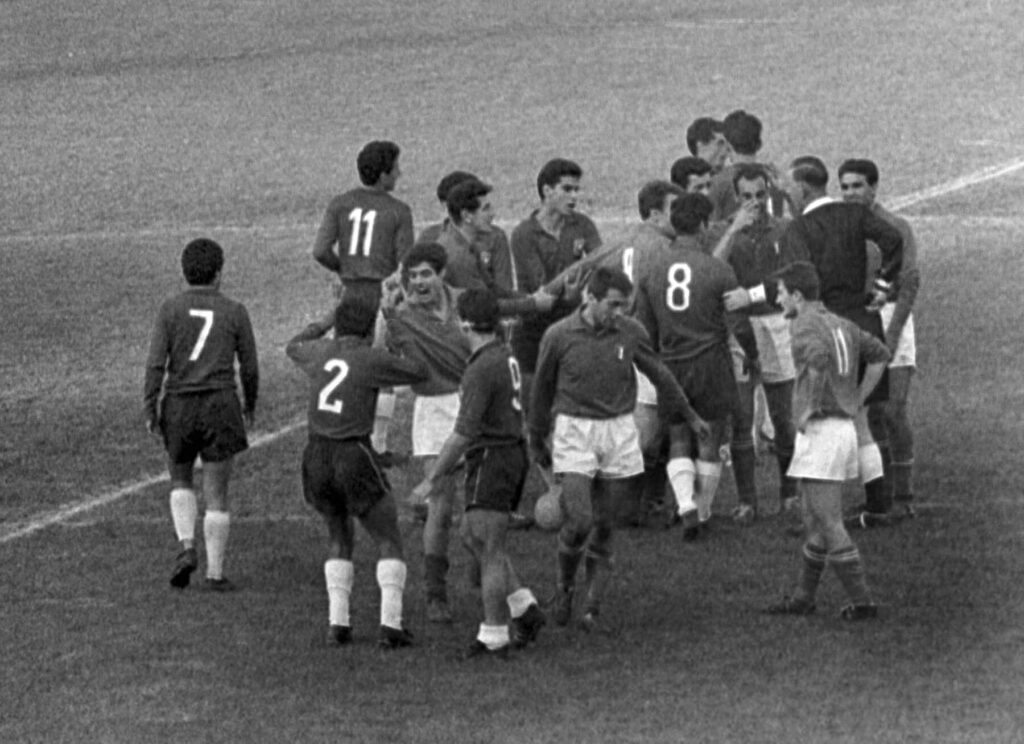
Global Reaction – Outrage and Embarrassment
News reports after the match used strong language to describe the incident. British journalist David Coleman, who commentated for the BBC, began his report by saying: “Good evening. The match you are about to see is the most stupid, appalling, disgusting and disgraceful exhibition of football, possibly in the history of the game.”
Newspapers and fans worldwide condemned the match. People questioned FIFA’s ability to organize fair and safe tournaments. The Battle of Santiago highlighted how national pride, political tensions and lack of control could turn football into chaos.
Changes in Football – The Birth of Yellow and Red Cards
One of the most important results of the Battle of Santiago was the realization that referees needed better tools to control matches. Ken Aston, who later became a senior official in FIFA, thought deeply about how to improve officiating.
He introduced the concept of yellow and red cards. The idea came from traffic lights – yellow meant a warning, and red meant stop or dismissal. These cards would be a universal language, understood by everyone, no matter their nationality or language. Yellow and red cards were introduced in the 1970 World Cup in Mexico. This system made it easier for referees to warn and punish players openly and fairly, improving discipline on the field.
Changes in Refereeing and Discipline
Following the events of 1962, FIFA also worked on improving refereeing standards. Referees received better training. They were encouraged to take stricter action against violent behavior. FIFA became more active in punishing players who showed dangerous conduct, even after the match through disciplinary panels.
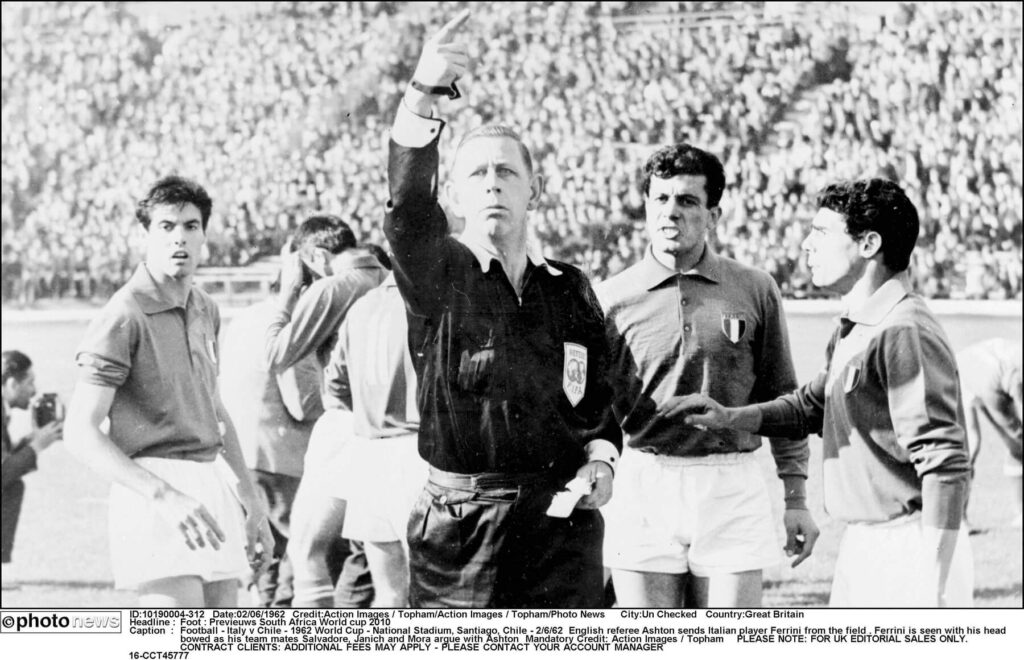
Television replays became more important in showing incidents to the world. With millions watching, FIFA had to take responsibility for making the game safer and more respectful. Over time, fair play campaigns were launched, and referees were given more authority to stop violence early in matches. Although football still witnesses aggressive play, the level of violence seen in the Battle of Santiago has never been repeated at such a scale.
The Legacy of the Battle of Santiago
The Battle of Santiago remains one of the darkest moments in World Cup history. It showed how politics and nationalism could ruin the spirit of sportsmanship. However, it also led to important reforms in football officiating.
Today, the match is often shown as a warning of what happens when emotions get out of control. Documentaries, books, and news reports have covered the match in detail, making it a famous lesson in football history. Interestingly, Ken Aston is now remembered not just for refereeing the violent match but also for inventing the yellow and red card system that modern football relies on.
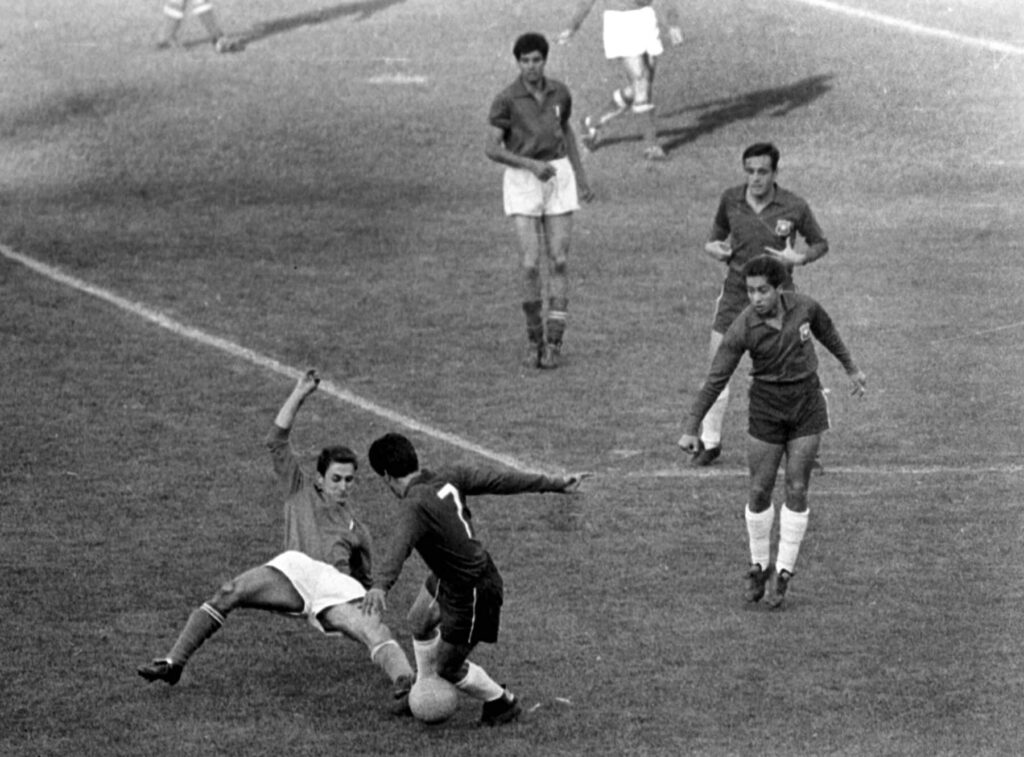
A Match That Changed Football Forever
The 1962 Battle of Santiago between Chile and Italy was more than just a football match. It was a brutal battle fueled by political anger, media wars, and lack of control on the field. Though it embarrassed football, it forced FIFA to improve officiating and introduce systems like yellow and red cards to control behavior on the pitch.
While Chile celebrated their win and Italy mourned their early exit, the whole world learned an important lesson about the dangers of mixing sports with hatred and politics. Today, the Battle of Santiago stands as a reminder of football’s rough past and how far the game has come in promoting discipline, fairness and respect.
